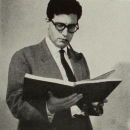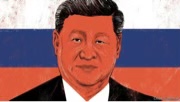|
please source your quote
|
|
|
|

|
| # ? May 27, 2024 10:32 |
|
A Buttery Pastry posted:please source your quote https://en.wikipedia.org/wiki/Winter_War ??? I guess better save it now before it gets rewritten or smth
|
|
|
|
a lot of trotskyists who haven't read losurdo itt
|
|
|
|
gradenko_2000 posted:https://en.wikipedia.org/wiki/Winter_War ???
|
|
|
|
John Charity Spring posted:weren't a lot of the purges essentially bottom-up as well, as in not orchestrated by Stalin but rather a really brutal way to solve disputes and grudges at local levels by party functionaries etc? and then also being ramped up by people like Yezhov who used it as a way to advance their own position. Stalin directed and signed off on a lot of it but iirc he was also being egged on and hyped up by his subordinates, etc. a perfect storm of different motives and fuckups and paranoia and cruelty This was a huge debate in the 80s, before we had access to the archives, but with the opening of the archives in the 90s we discovered that a lot of it was orchestrated directly from Stalin at the top. He was personally signing death lists with his big old grease pencil, and personally signing off on quotas for arrests and executions in different regions. That's how arbitrary the purges were - the guys at the top in Moscow figured "this percentage of people in this province must be counterrevolutionary, kill them" based on nothing. They weren't responding to actual plots or evidence, they were just making up numbers and telling their subordinates to get to work. A lot of this was based on longstanding norms of conspiratorial thinking within the Party and its leadership, probably originating in prerevolutionary party work where there actually were spies and conspiracies and double agents and saboteurs within the Party, and then solidified by the enormous amount of threats the party faced during the Civil War era, which convinced them that they were right to assume the whole world was against them, because it was. That fostered an atmosphere of paranoia where party leaders at the top and party members at the ground level acted as if there were no accidents. If a machine broke it could be metal fatigue but it was probably sabotage. If someone came late to work it could be that the tram was delayed but it was probably that they're a wrecker. If somebody assassinates Sergei Kirov, it couldn't be that they were a lone wolf bearing a personal grudge because Kirov kicked them out of the Party, it must be evidence of deep-rooted conspiracies to assassinate all Soviet leaders. That was the atmosphere of paranoia that led to thinking the number of problems lingering in Soviet society in the late 30s must be the result of an enormous number of spies and saboteurs trying to destroy socialism, rather than the result of a society that had just experienced several decades of enormous upheaval and dislocation. Stalin wasn't alone in feeling that sort of paranoia, but he was the leader of the country so when he acted on it, for instance by ordering purges, it mattered most. Also, this isn't even Stalin and the leadership being hypersensitive to threats that really did exist, because there's also evidence that when he discovered actual threats, Stalin dismissed them because they didn't fit his personal idea of what a threat should look like. For example, the Soviet spy Richard Sorge in Japan warned Stalin weeks ahead of time that Germany was planning to invade in June 1941, and Stalin dismissed the reports completely (along with similar ones from other spies like Alexander Rado) because he assumed he had a better reading of Hitler's intentions. Stalin personally scrawled on one Sorge report warning that the Nazis would attack in June 1941: "Suspicious. To be listed with telegrams intended as provocations." The guy dismissed warnings of the actual threat that mattered most because he was more suspicious of his own spies than of Hitler. The big thing is Stalin was obviously not at ground level shooting people himself. Once he made the lists and gave the orders, it was up to local NKVD officers and Party officials to carry them out, and to try and impress their bosses they were constantly overfulfilling the quotas, finding more imaginary plots to report back to Moscow, etc., while ordinary people were also taking advantage of this to settle their own scores, like petty functionaries who wanted to move up the career ladder accusing the people above them of being Trotskyists. So the answer is that it was both. We now know that a lot of it was orchestrated directly from the people at the top, where the buck stopped with Stalin, but the USSR was a big place and the way the purges actually played out at ground level depended a lot on the local officials. The two things fed into each other: Stalin's orders gave people carte blanche to arrest and kill perceived enemies or social rivals, officers overfulfilled quotas to try and impress their bosses or avoid bringing suspicion onto themselves, and then the people back at the centre received their memos saying "actually we found even more spies and saboteurs than your quota told us to" and concluded that the situation was even worse than they thought, therefore justifying the purges continuing to deepen in a positive feedback loop of violence.
|
|
|
|
Yes, but how did it help?
|
|
|
|
Fish of hemp posted:Yes, but how did it help? it convinced hitler operation barbarossa would work, which was pretty much the worst way germany could have tried to fight the ussr weird how people get mad at stalin not initially attacking fascist germany but also at attacking fascist finland
|
|
|
|
"I convinced hitler to invade" ... as a good thing?
|
|
|
|
HootTheOwl posted:"I convinced hitler to invade" ... as a good thing? hitler was going to invade anyways, like the fascists in poland and finland did. the winter wars convinced hitler to invade in a dumb, immediately doomed manner.
|
|
|
|
vyelkin posted:He was personally signing death lists with his big old grease pencil, and personally signing off on quotas for arrests and executions in different regions. That's how arbitrary the purges were - the guys at the top in Moscow figured "this percentage of people in this province must be counterrevolutionary, kill them" based on nothing. They weren't responding to actual plots or evidence, they were just making up numbers and telling their subordinates to get to work. This is fascinating and I can't help but think of the abstract war of numbers that McNamara would later fight in Vietnam. Despite obviously having different views on more than a few matters, American war planners and Community Party elites make a similar mistake of trying to manage a political and social dynamic by first plotting a line on a graph and then trying to torture reality into fitting the curve.
|
|
|
|
bolshevism was an ultramodernist position - there was a real conviction that they'd discovered the fundamental laws of historical development and through scientific investigation could reorder society under rational lines. it's an almost millenarian impulse, and forged under the conditions that vyelkin has noted estimating the number of counterrevolutionaries based on some kind of statistical inference is par for the course; misunderstanding the incentives of the junior officers involved is less forgivable
|
|
|
|
V. Illych L. posted:estimating the number of counterrevolutionaries based on some kind of statistical inference is par for the course; misunderstanding the incentives of the junior officers involved is less forgivable Yeah, again, a parallel to the American war in Vietnam: officers in the field want promos, they get promos from stacking bodies, so they produce bodies (or scraps of bodies so they can count a single slain civilian as multiple enemy KIA; James William Gibson's Technowar has lots of good stuff on this)
|
|
|
|
reading accounts of the purged I’m not so sure it was statistics driving the purges but rather the insane nature of them vis a vis demanding the arrested name as many names as possible. it really just strikes me as an incredibly stupid and deadly positive feedback loop where each arrest leads to a dozen more and each of those dozen nets another dozen and so and so on. really my only question is if it designed this way intentionally or if no one considered how the purges were feeding into themselves
|
|
|
Raskolnikov38 posted:reading accounts of the purged I’m not so sure it was statistics driving the purges but rather the insane nature of them vis a vis demanding the arrested name as many names as possible. it really just strikes me as an incredibly stupid and deadly positive feedback loop where each arrest leads to a dozen more and each of those dozen nets another dozen and so and so on. When people named names, how was the treatment relative to those who didn't name names? I ask because something I had heard about the Salem Witch Trials, which in which accusations propagated in the same way, was that those who produced names of their fellow witches usually if not always avoided a direct death sentence. I say direct because jail was particularly deadly then and could itself be seen as a death sentence on a sufficiently long timescale. I'm curious to know if the dynamic where someone falsely confessing and naming names was also interpreted as a sign of remorse or contrition was also present in the purges.
|
|
|
|
|
Raskolnikov38 posted:really my only question is if it designed this way intentionally or if no one considered how the purges were feeding into themselves It is kinda ironic that the most anti communist people are the ones insisting that it's all the fault of the personal evil of Stalin Lenin and whoever else
|
|
|
|
vyelkin posted:So the answer is that it was both. We now know that a lot of it was orchestrated directly from the people at the top, where the buck stopped with Stalin, but the USSR was a big place and the way the purges actually played out at ground level depended a lot on the local officials. The two things fed into each other: Stalin's orders gave people carte blanche to arrest and kill perceived enemies or social rivals, officers overfulfilled quotas to try and impress their bosses or avoid bringing suspicion onto themselves, and then the people back at the centre received their memos saying "actually we found even more spies and saboteurs than your quota told us to" and concluded that the situation was even worse than they thought, therefore justifying the purges continuing to deepen in a positive feedback loop of violence. there's plenty of other historical examples where we do acknowledge this dynamic - the cultural revolution being an obvious one. but if you want a non-communist example, there's also the post-war repression of collaborators - where a lot of the imprisonments and executions were driven not by a sense of justice, but by a fear of what the people and the resistance groups would do if there wasn't enough of a show of retribution. i swear someone published a book about this recently, but i can't for the life of me remember the name.
|
|
|
|
R. Mute posted:i think this is a limited way of looking at things, and one that's far too common in western historiography about the soviet union, because it completely ignores the possibility that people actually believed in what they were doing - or in anything at all, really. it's all settling scores, self-preservation, opportunism, but the idea that people earnestly believed they were rooting out class enemies or protecting the socialist project never comes up. it also tends to view the communist party as somehow alien to soviet society, a separate entity that merely enforced its will on the soviet people, while in reality the interaction between the communist party and the society it was a part of was integral to a lot of party decisions and acts. In a similar vein, I've long questioned how much influence the Tsarist Russian Empire had on the USSR. From what I understand, the Soviets kept a lot of the more repressive, reactionary elements from the Tsar and tried to harness them for the good of the Workers' State. Could Stalin's purges be a result of the Soviets failing to purge the real poison of reaction from their government and their society?
|
|
|
|
mycomancy posted:In a similar vein, I've long questioned how much influence the Tsarist Russian Empire had on the USSR. From what I understand, the Soviets kept a lot of the more repressive, reactionary elements from the Tsar and tried to harness them for the good of the Workers' State. Could Stalin's purges be a result of the Soviets failing to purge the real poison of reaction from their government and their society? i'm not sure if he's written anything about internal soviet dynamics but vladislav zubok's failed empire's central thesis is that the soviets inherited and continued aspects of tsarist foreign policy
|
|
|
StashAugustine posted:It is kinda ironic that the most anti communist people are the ones insisting that it's all the fault of the personal evil of Stalin Lenin and whoever else If Stalin was like Hitler then communism is like Nazism, ergo liberal capitalism is the only right way. Very straightforward stuff imo
|
|
|
|
|
Raskolnikov38 posted:i'm not sure if he's written anything about internal soviet dynamics but vladislav zubok's failed empire's central thesis is that the soviets inherited and continued aspects of tsarist foreign policy i think a fair amount of foreign policy effectively amounts to playing the geographical and demographic hand you're dealt certainly one could make parallels between the warsaw pact and imperial russia's "gendarme of europe" policy, but a lot of the basic outlook is more or less determined for you
|
|
|
|
R. Mute posted:i think this is a limited way of looking at things, and one that's far too common in western historiography about the soviet union, because it completely ignores the possibility that people actually believed in what they were doing - or in anything at all, really. it's all settling scores, self-preservation, opportunism, but the idea that people earnestly believed they were rooting out class enemies or protecting the socialist project never comes up. it also tends to view the communist party as somehow alien to soviet society, a separate entity that merely enforced its will on the soviet people, while in reality the interaction between the communist party and the society it was a part of was integral to a lot of party decisions and acts. This is undoubtedly true and a lot of Western historiography has always approached everywhere on Earth from the point of view that inside every historical actor is a liberal subject trying to get out. The most famous book challenging this is Jochen Hellbeck's Revolution on My Mind which examines Stalin-era diaries to talk about how at least some Soviet citizens really did have a deep faith and belief in socialism as a system and in refashioning themselves as socialist people. As with any historical event affecting tens of millions of people, it's too simplistic to attribute it to one thing or the other, there were guaranteed to be people making these decisions based on genuine belief and people making the same decisions based on cynical self-advancement.
|
|
|
|
quote:Until very recently the old lady who used to look after the cemetery—her name was Maria Lutsenko and she was known as Masha—still lived in the cemetery house just above the ravine.
|
|
|
|
Are there any charts out there about populations before and after the partition of countries like Yugoslavia, or the USSR? Looking for stuff like this  
|
|
|
|
AnimeIsTrash posted:Are there any charts out there about populations before and after the partition of countries like Yugoslavia, or the USSR? 
|
|
|
|
Cross-posting: "Jefferson Davis, Napoleonic France, and the Nature of Confederate Ideology, 1815 - 1870", by Jeffrey Zvengrowski gradenko_2000 posted:
gradenko_2000 posted:maybe I should take this to the modern history thread, but jesus... I'm finding this book quite fascinating because it describes a political dynamic that I was completely unaware of until just yesterday, and if it pleases the forum, I'm going to start posting excerpts starting with Chapter 1 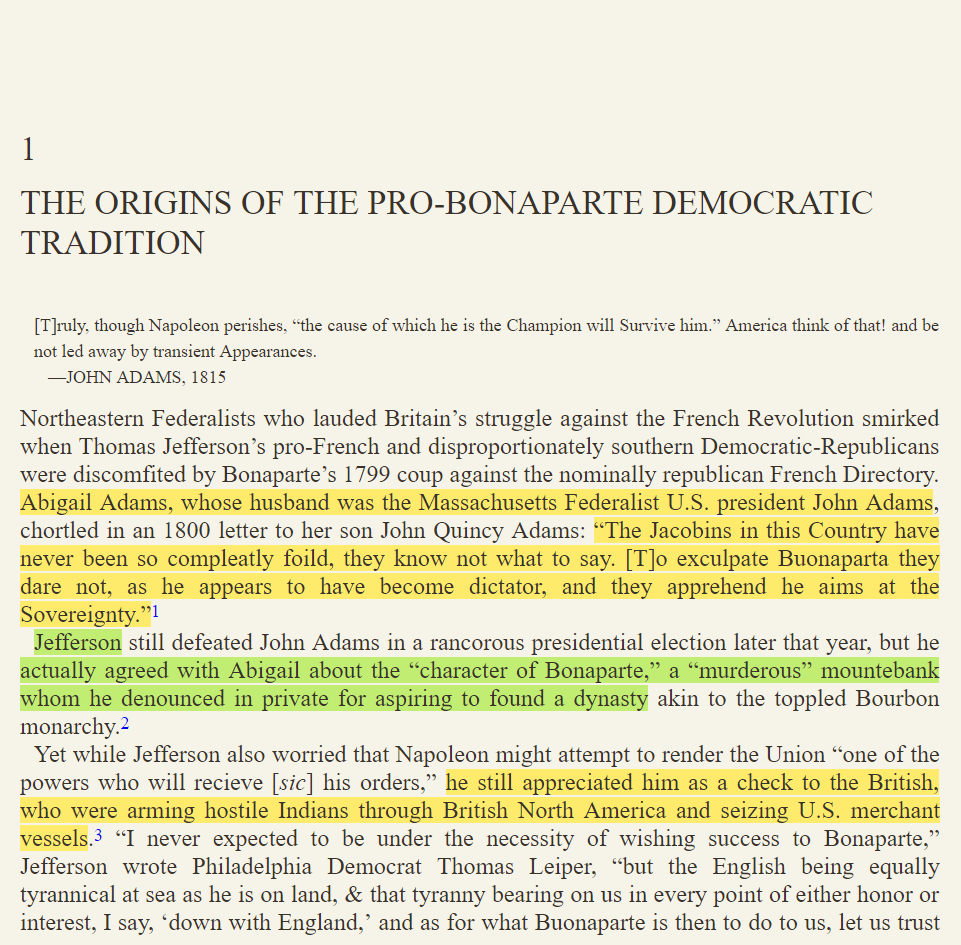 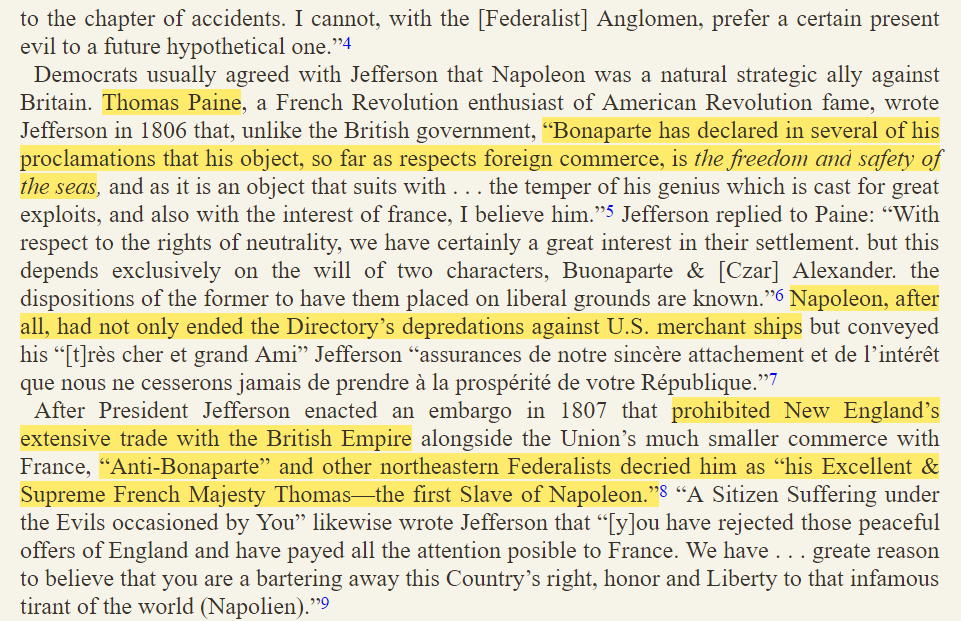 ...  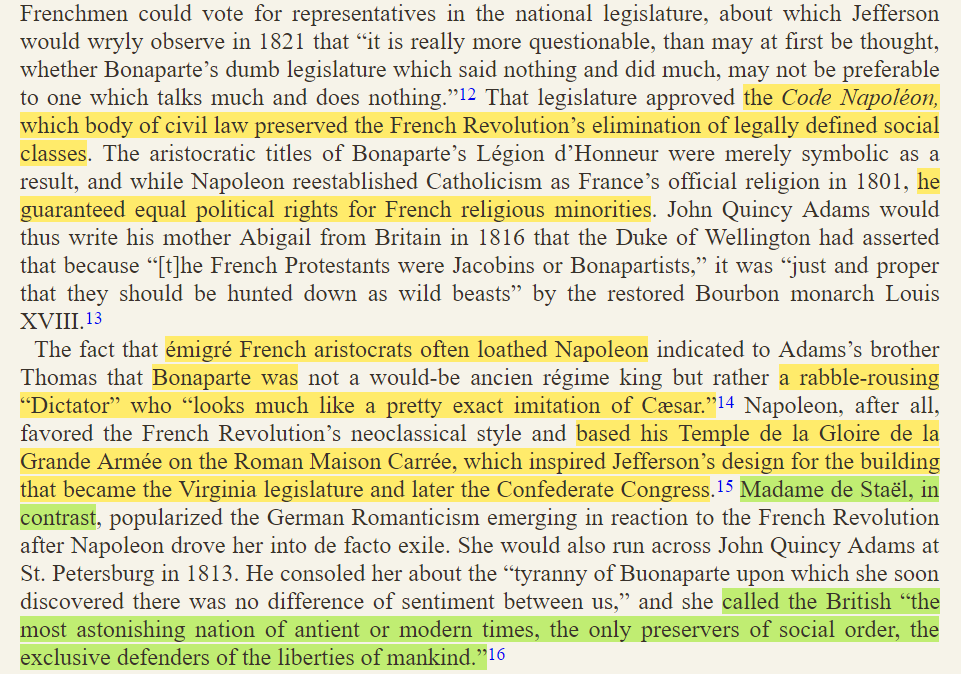 ... 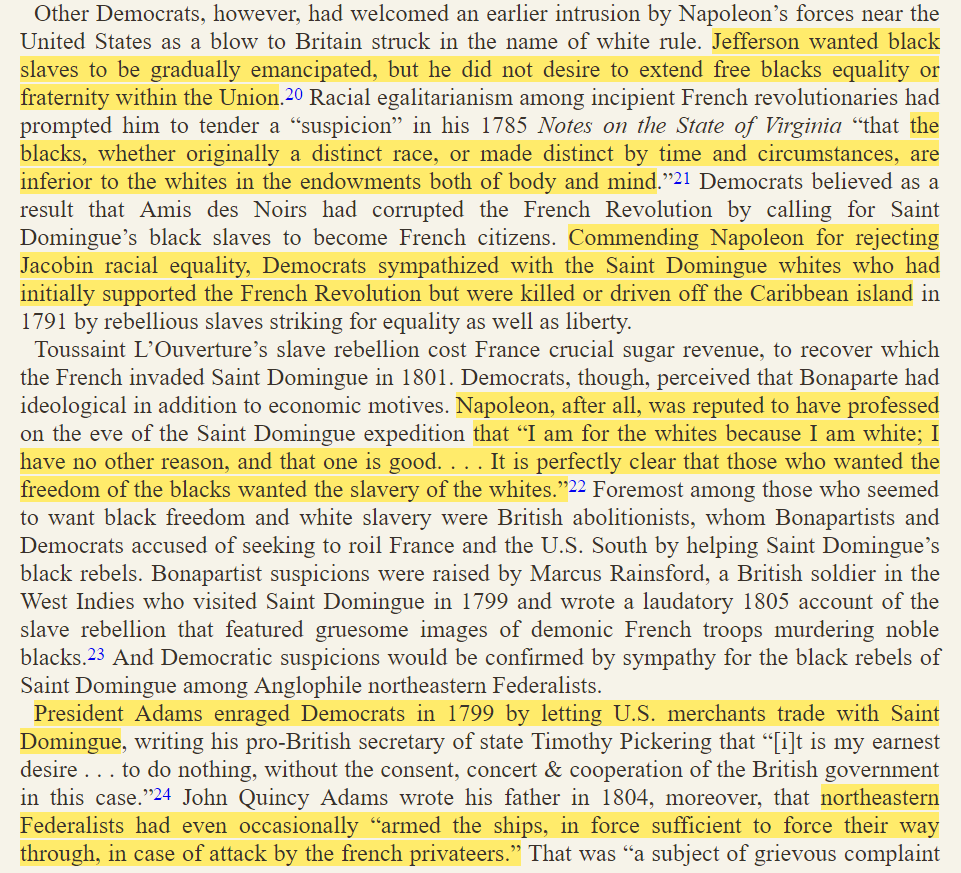 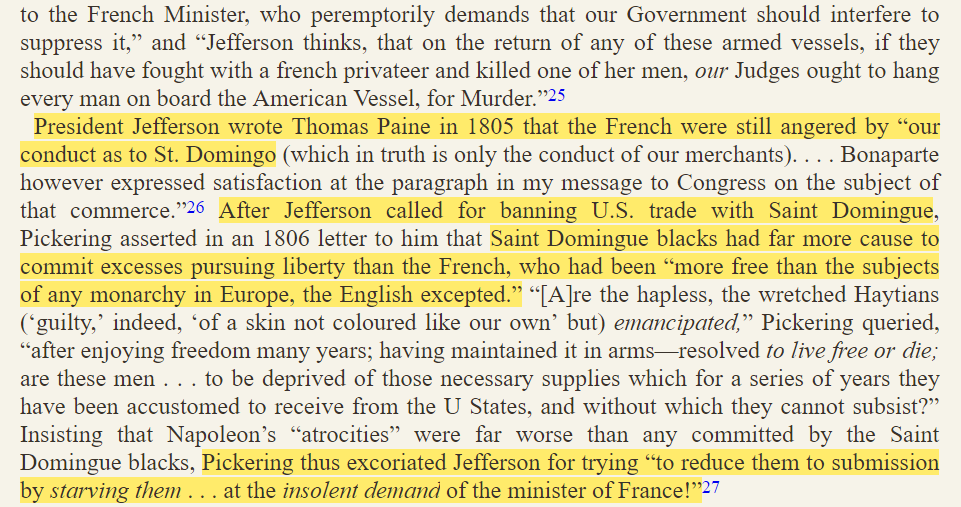 ... 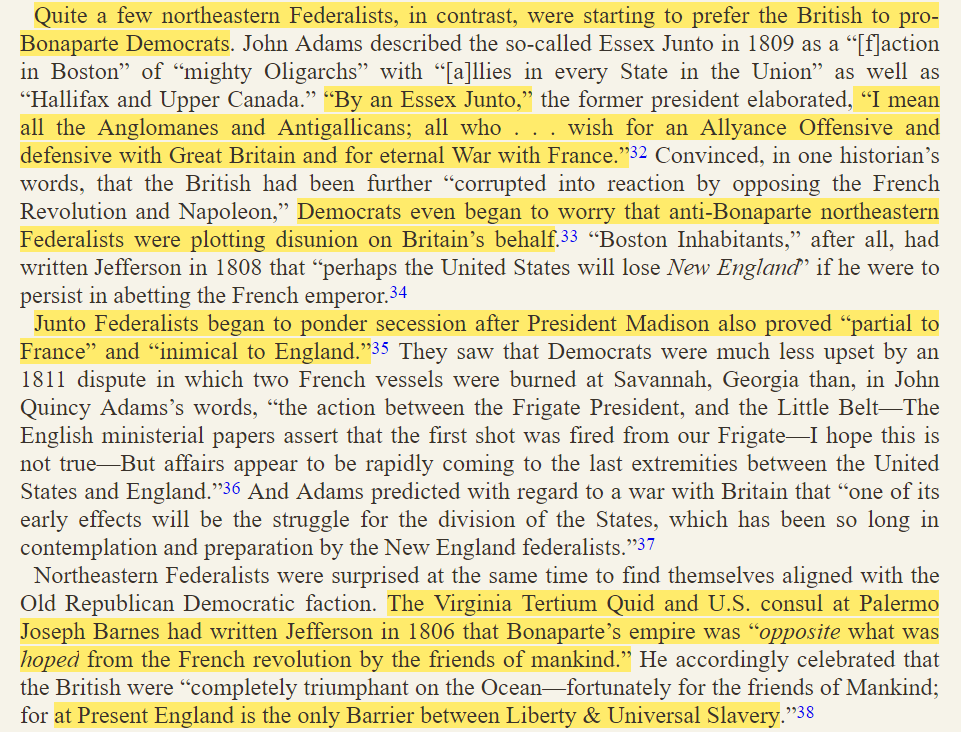 ... 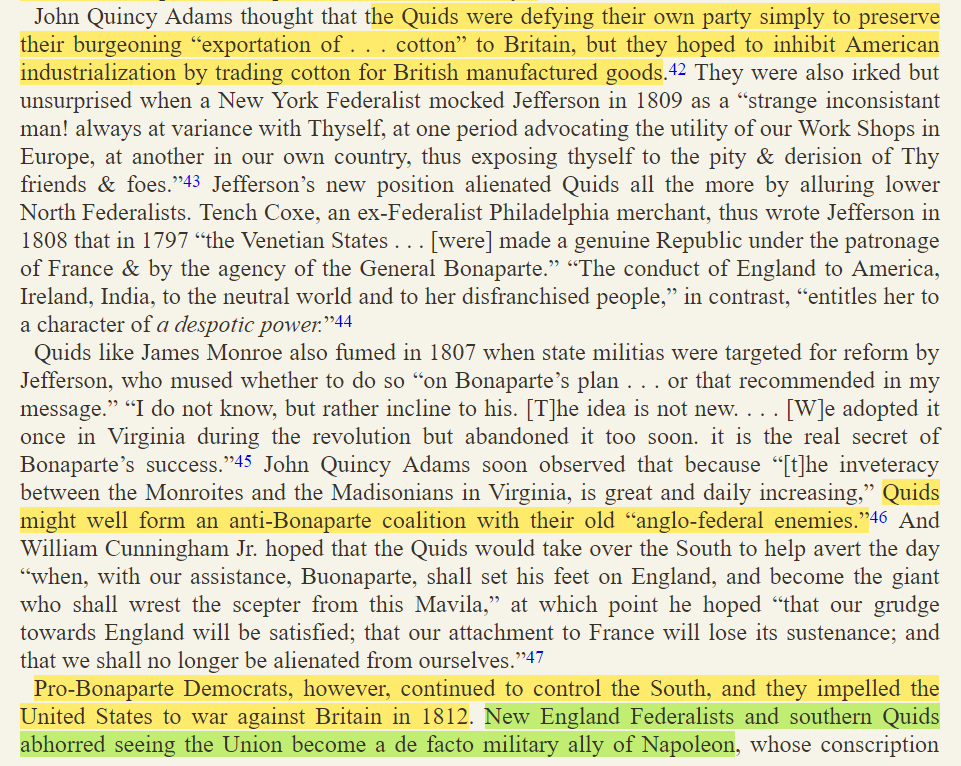 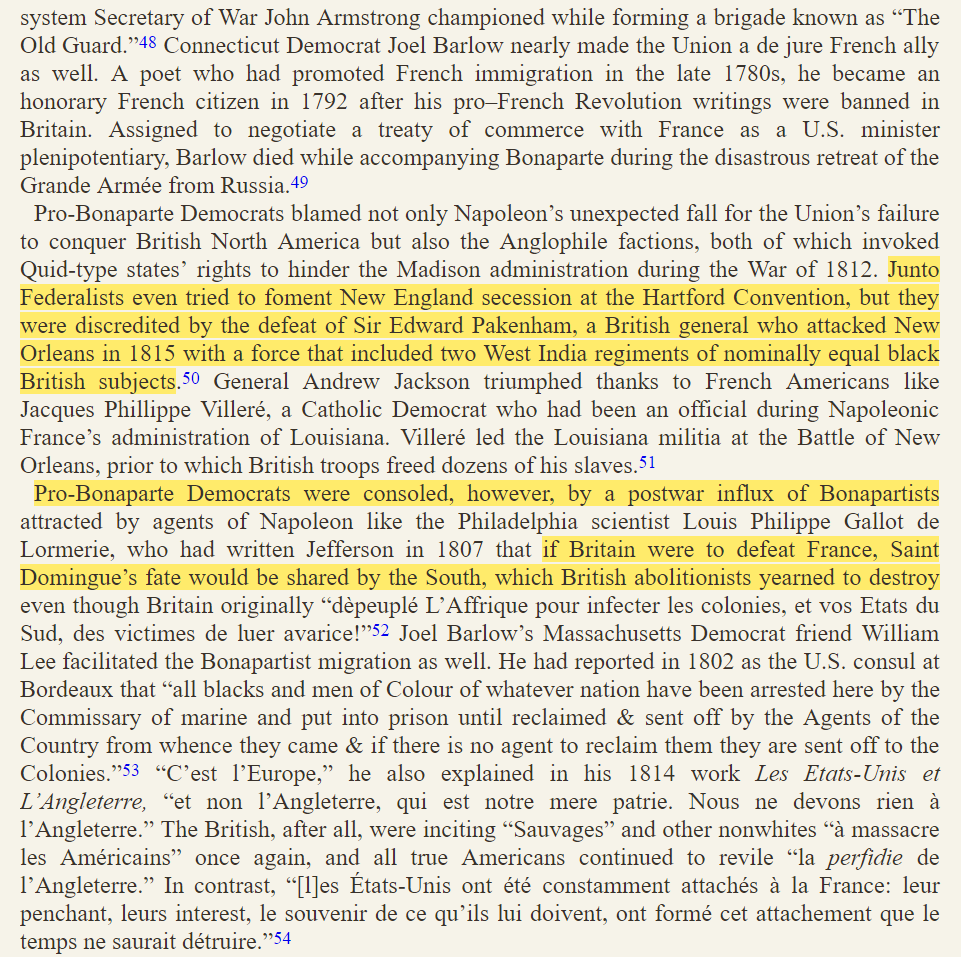
|
|
|
|
I will limit my comments on that map to saying that my family mostly originates from blue areas that changed color.gradenko_2000 posted:I'm finding this book quite fascinating because it describes a political dynamic that I was completely unaware of until just yesterday, and if it pleases the forum, I'm going to start posting excerpts Thank you for the post, you have a good eye for finding useful information (and to be completely honest, you're a far more avid reader than I am, which also helps find useful stuff  ). It's starting to clarify some things that greatly confused me about the USA civil war. I'm certainly interested in reading any followups you make. ). It's starting to clarify some things that greatly confused me about the USA civil war. I'm certainly interested in reading any followups you make.
my dad has issued a correction as of 12:18 on Jul 18, 2023 |
|
|
|
"Jefferson Davis, Napoleonic France, and the Nature of Confederate Ideology, 1815 - 1870", by Jeffrey Zvengrowski Chapter 2, part one 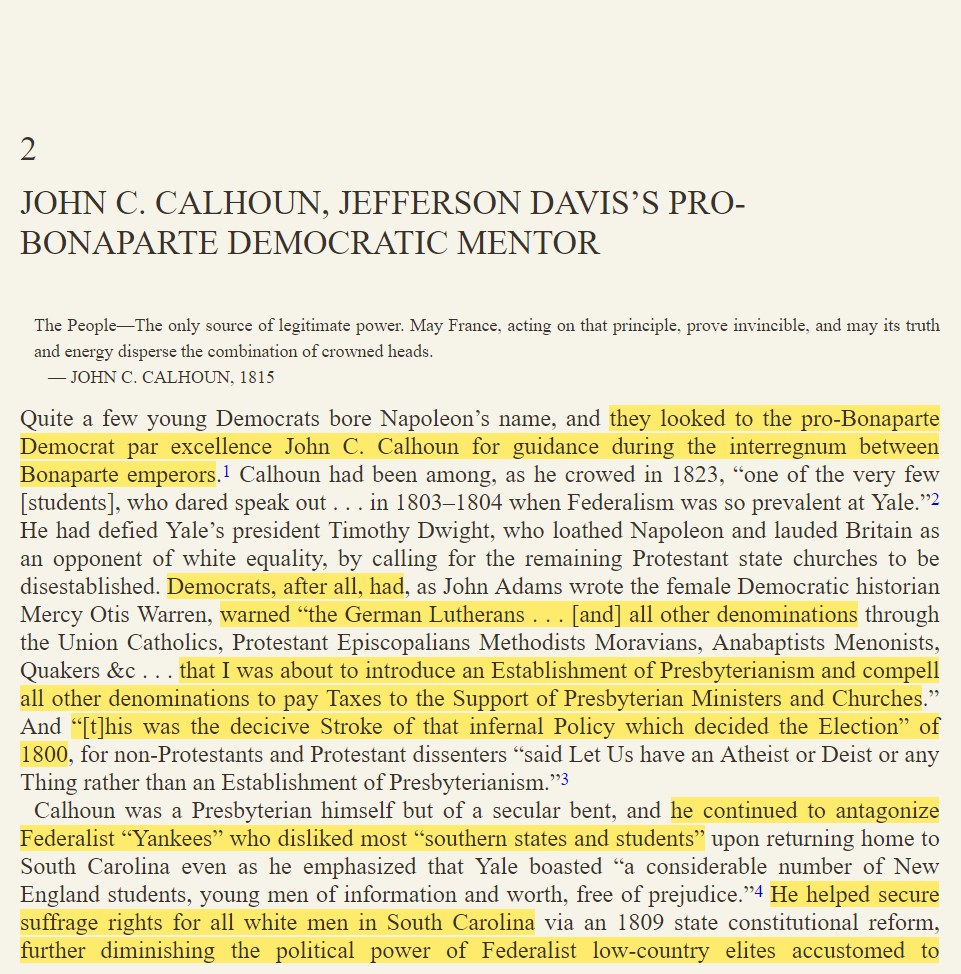  based on what I've been able to garner, I'd like to mention that a good companion piece to this book would be Domenico Losurdo's "Liberalism: A Counter-History" - Calhoun shows up a lot in that book, because a big part of it deals with how liberalism, or what some might call "classical liberalism", was completely compatible with racism, imperialism, and slavery... which then manifests in this specific instance of Jefferson Davis and a significant faction of Southrons considering themselves to be in consonance with liberalism as derived from France... while also standing against [what they think] Britain represents, ergo abolitionism 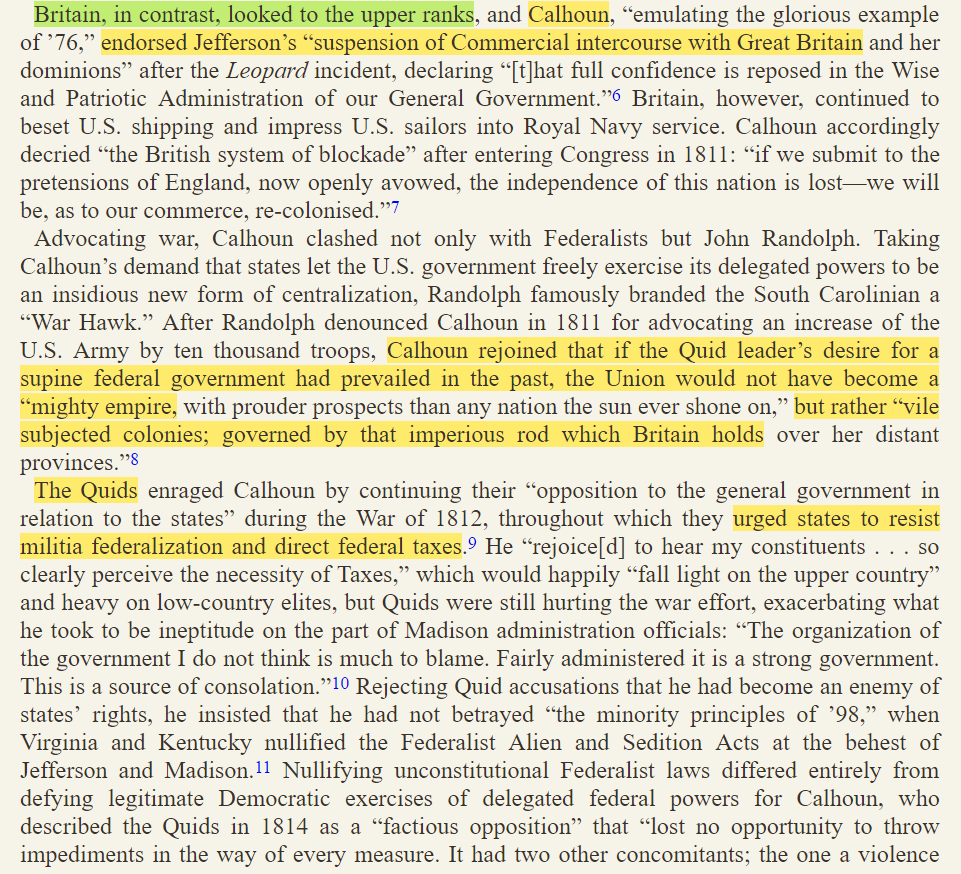 and yet, at the same time that Calhoun and the Southern Bonapartists were in opposition to "Pro-Britain New England Federalists", they were at the same time battling with these Quids - who were so fully committed to the project of planation agrarianism that they refused to partake in any kind of national/federal development, for fear that A. such centralization would allow a state to intrude on "state's rights", and B. that industrialization would mean an end to slavery as an economic system. 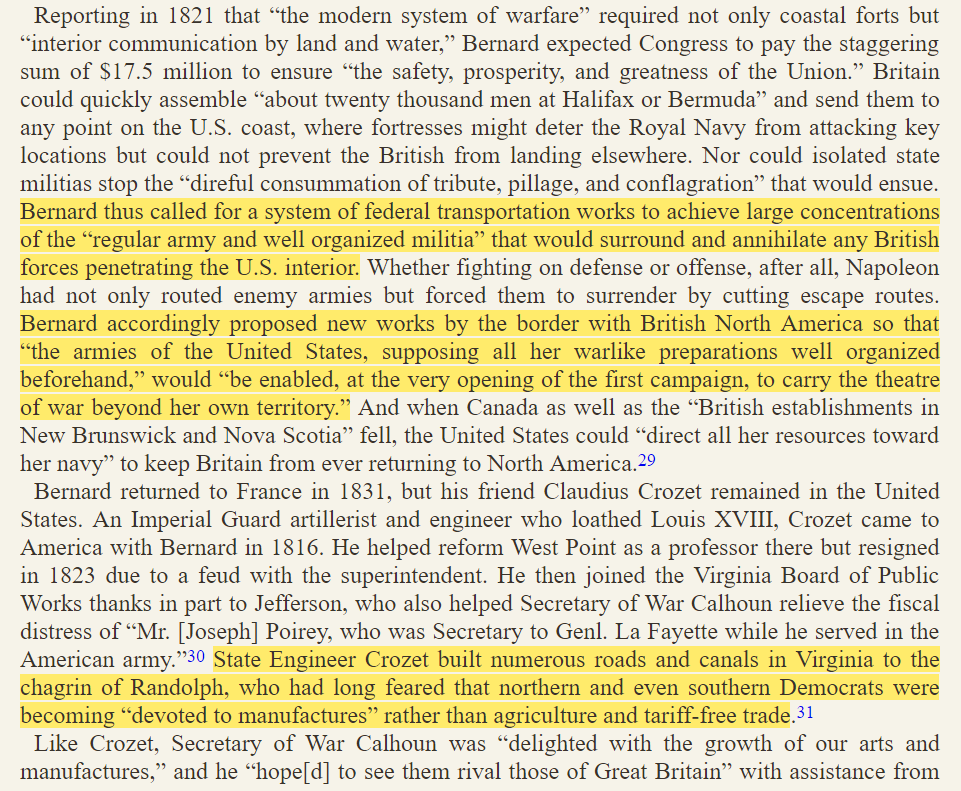  ...  in the section above you can see a sort of echo of capitalist contradiction we see today, where the state keeps panicking about falling behind in issues of "national security" (read: the maintenance of empire), but they are finding it difficult to deal with internal ideological forces. Calhoun can see that privatization and contractualization is no way to develop a military and manufacture war materiel, but on the other side of it is a pack of rabid reactionaries that abhor the state
|
|
|
|
"Jefferson Davis, Napoleonic France, and the Nature of Confederate Ideology, 1815 - 1870", by Jeffrey Zvengrowski Chapter 2, part two 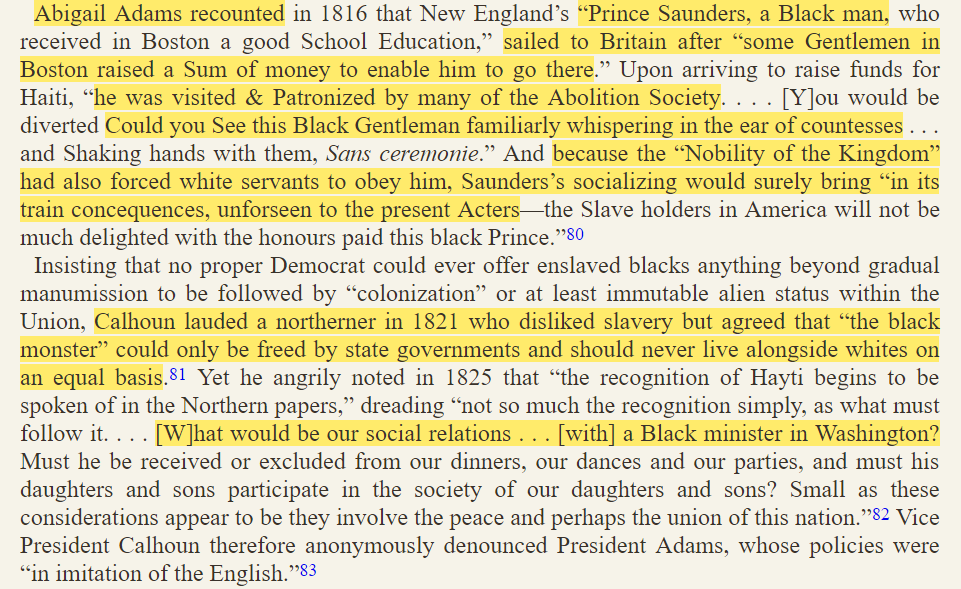 that last paragraph echoes with the problems of newly independent African states sending their diplomats to Washington and then facing discrimination from whites-only diners and motels 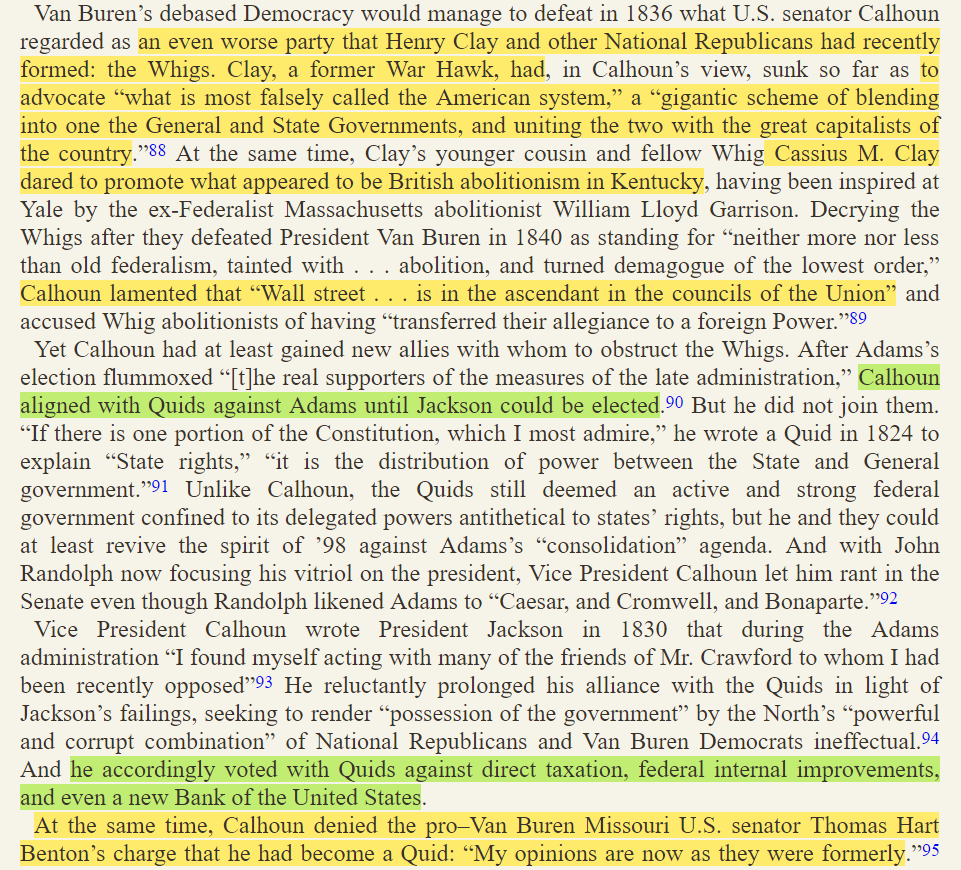 and then here we have Calhoun deciding to ally with the Quids anyway, whenever the issue of abolition to come up ... 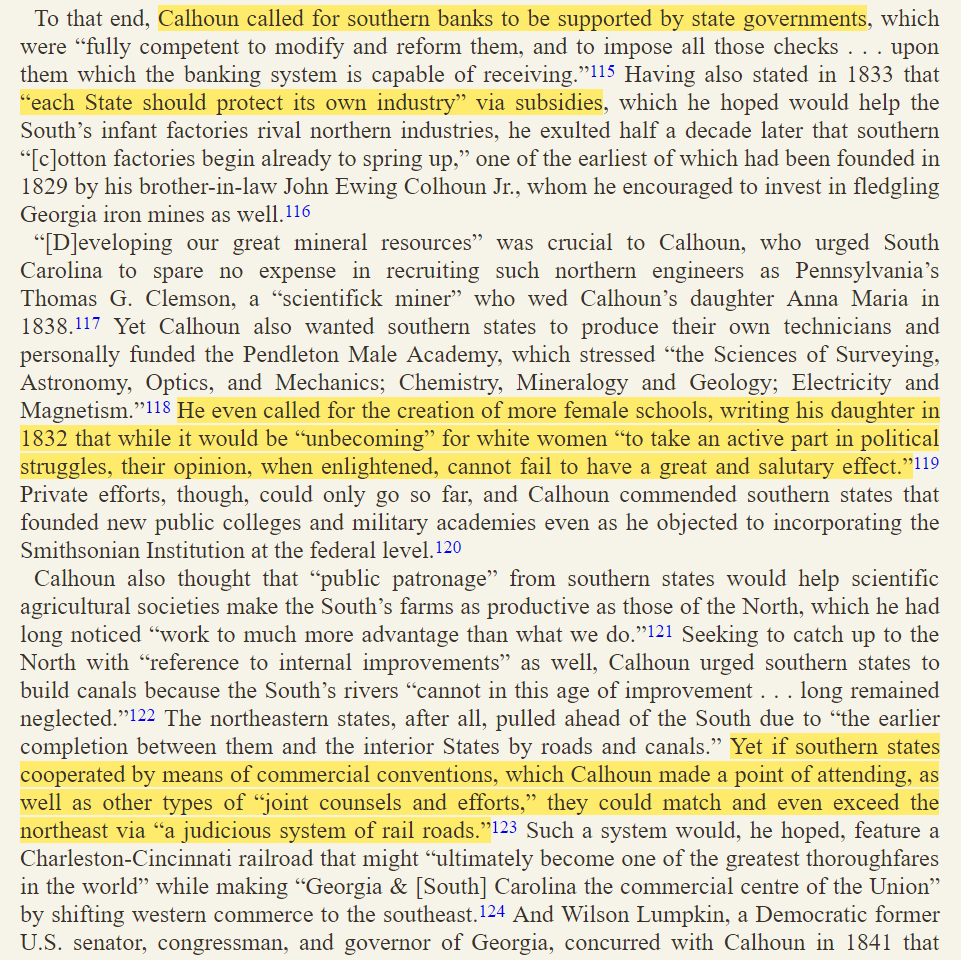 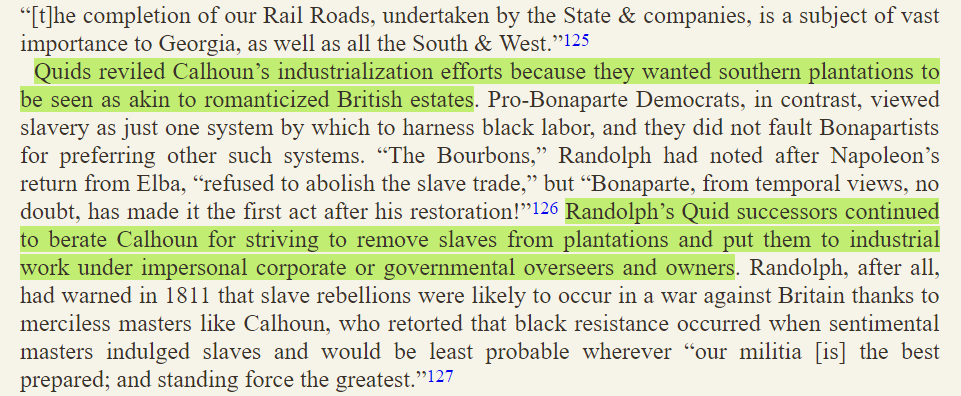 ... even though these same Quids would oppose Calhoun's economic policies on the basis that they didn't want an economic reason for plantation slavery to slip away either. As well, that bit about the construction of railroads being a key to Southern development is especially ironic given how the Southern rail-lines turned out, and how much it hobbled the CSA, during the Civil War ___ 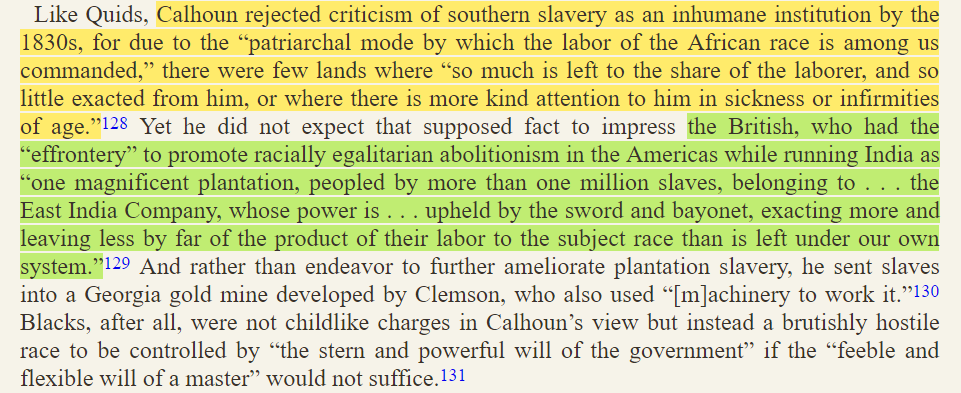 Calhoun manages a half-way decent dig here at the Brits 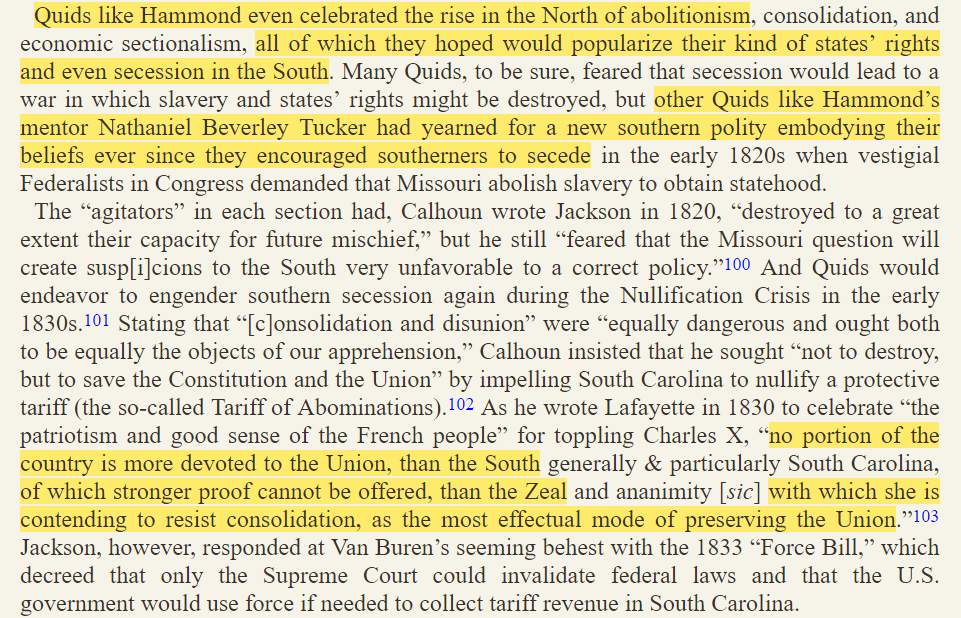 this last bit is interesting because it seems like Calhoun is saying that resisting centralization is what would keep the Union alive, probably because of his particular understanding of what the Union represents (ergo, NOT a centralized nation), but also that pushing too hard for it tear the Union asunder, as with the Civil War; that is, even if the sundering would be caused by people who wanted to keep slaves
|
|
|
|
J. Robert Oppenheimer, “the father of the atomic bomb,” has long been a darling of the left, and not because he oversaw the creation of the most devastating weapon ever used. No, for them Oppenheimer is the tortured conscience of the Cold War and the martyred saint of McCarthyism. Kai Bird, co-author of the excellent biography on which Christopher Nolan’s film “Oppenheimer” is based, has penned a column in The New York Times lamenting the tragic life of the physicist, who lost security clearance in 1953. Oppenheimer was, writes Bird, “destroyed by a political movement characterized by rank know-nothing, anti-intellectual, xenophobic demagogues, the witch-hunters of that season are the direct ancestors of our current political actors of a certain paranoid style.” The main culprit in this ugly tale, according to the author, is Roy Cohn, Joe McCarthy’s chief counsel, “who taught former President Donald Trump his brash, wholly deranged style of politics.” There it is. You can almost picture an innocent screenwriter, who had only briefly flirted with communism as a youngster, being accused of sedition by The Donald. The Red Scare, just ask anyone in Hollywood, was the greatest crime ever visited upon mankind. Well, perhaps the second greatest after the 2016 election. “Just recall the former president’s fact-challenged comments on the pandemic or climate change,” Bird reminds us. “This is a worldview proudly scornful of science.” The problem is, Bird doesn’t defend Oppenheimer’s science — or any science, for that matter. Rather, he defends the physicist’s political outlook, which, like his own, was fueled by utopian wish-casting and counterhistories. It’s no accident that Bird, the Oppenheimer expert, writes an entire column about this witch hunt without once mentioning that the physicist was likely a communist — or, at best, a communist sympathizer. Bird’s column creates the impression that only hysterical and paranoid Birchers could possibly have questioned Oppenheimer’s integrity. Even Bird’s book, American Prometheus, tells a different story. On numerous occasions, Oppenheimer admitted to being a “fellow traveler.” Indeed, Oppenheimer lied to government investigators and was often evasive about his numerous close relationships with known communist operatives. His first love, his wife, his brother, and many of his good friends and colleagues were all communists at some point. And long before anyone ever heard the name “Roy Cohn,” the U.S. government was monitoring Oppenheimer, tapping his phones, tracing his movements and relationships. There was much consternation among U.S. officials about Oppenheimer while he was director of the Los Alamos lab. According to Richard Rhodes, author of The Making of the Atomic Bomb, Peer de Silva, the project’s chief resident security officer, believed Oppenheimer was a spy back in 1942. Just because they’re paranoid doesn’t mean you’re innocent. There were plenty of communists operating in the U.S. government around this time. Many elites who came of age in the 1920s and 1930s, including Oppenheimer, had been supportive of the Soviet Union. When the Venona files and Soviet archives were opened, Americans learned that Alger Hiss, Laurence Duggan, Lauchlin Currie, William Remington, and many others defended by the American left had been Soviet agents. Some of the know-nothings knew something. Indeed, Oppenheimer managed a Manhattan Project that was teeming with Soviet spies. In their book, Sacred Secrets, Jerrold and Leona Schecter produce a Soviet document sent to Stalin’s secret police henchman Beria that they claim points to Oppenheimer as being a facilitator of espionage — much like FDR’s pro-Soviet Treasury official Harry Dexter White, who let a nest of spies work under his nose. Historians have debated the significance of the document and whether Oppenheimer was a spy. My admittedly cynical view is that many contemporary historians don’t really much care. They see little wrong with the Soviet flirtations of U.S. officials, much less their communist sympathies. Unlike fascists, communists are almost always portrayed as ideological eccentrics driven by naivety or good intentions. Oppenheimer hagiographies almost always double as critiques of American Cold War policy. Writers, for example, love to contrast Oppenheimer’s alleged moral struggles with the stern and uncompromising nature of his great rival Edward Teller, the “father of the hydrogen bomb” and template for Dr. Strangelove and other fictitious warmongers. Though the more accomplished Teller would be proven right about both the Nazi and Soviet threats, no one is ever making a movie celebrating his life. At any rate, when the Manhattan Project was concluding, numerous participants began to argue that the U.S. shouldn’t have a monopoly on nuclear technology. Niels Bohr (not a spy) famously wanted atomic science open-sourced. Klaus Fuchs (definitely a spy) wanted the same, but simply handed the USSR atomic secrets instead. In 1995, when it was learned that another Los Alamos scientist, Ted Hall, had sent secrets to the Soviets in the 1940s, he went on television and explained that he “decided to give atomic secrets to the Russians because it seemed to me that it was important that there should be no monopoly…” How these men conducted business matters, but the rationalization of all of them is perilously close to Oppenheimer’s thinking on the technology he had helped create. As Bird writes: quote:Oppenheimer was trying desperately to have that kind of conversation about nuclear weapons. He was trying to warn our generals that these are not battlefield weapons, but weapons of pure terror. But our politicians chose to silence him; the result was that we spent the Cold War engaged in a costly and dangerous arms race. Would Hall or Oppenheimer have wanted to break the U.S. atomic monopoly or effectively surrender our technology had the Nazis still held power? Of course not. The American left never really viewed the totalitarian Soviet Union with the same moral disdain they did other tyrannies. Moreover, had it not been for the spies working under Oppenheimer, the United States would likely have spent more of the Cold War in a less costly and precarious position. Even still, the U.S. avoided the kind of large-scale conflict that engulfed the world in the first half of the 20th century. All the spies did was help the Soviets strip hundreds of millions of people of their basic dignity and freedom. And those who wanted the United States to unilaterally surrender their nuclear advantage were basically arguing for the same results. That is not a position to be admired. It’s a position that sparks even more healthy curiosity about Oppenheimer.
|
|
|
|
There are no meaningful translations for these terms. They are needlessly recursive. They contain no usable intelligence, yet they are structured intelligently; there is no chance they could have arisen by chance. The only explanation is that something has coded nonsense in a way that poses as a useful message; only after wasting time and effort does the deception becomes apparent. The signal functions to consume the resources of a recipient for zero payoff and reduced fitness. The signal is a virus. Viruses do not arise from kin, symbionts, or other allies. The signal is an attack. And it's coming from right about there.
|
|
|
|
Some Guy TT posted:J. Robert Oppenheimer, “the father of the atomic bomb,” has long been a darling of the left, and not because he oversaw the creation of the most devastating weapon ever used. No, for them Oppenheimer is the tortured conscience of the Cold War and the martyred saint of McCarthyism. ok cool
|
|
|
|
"Jefferson Davis, Napoleonic France, and the Nature of Confederate Ideology, 1815 - 1870", by Jeffrey Zvengrowski Chapter 3 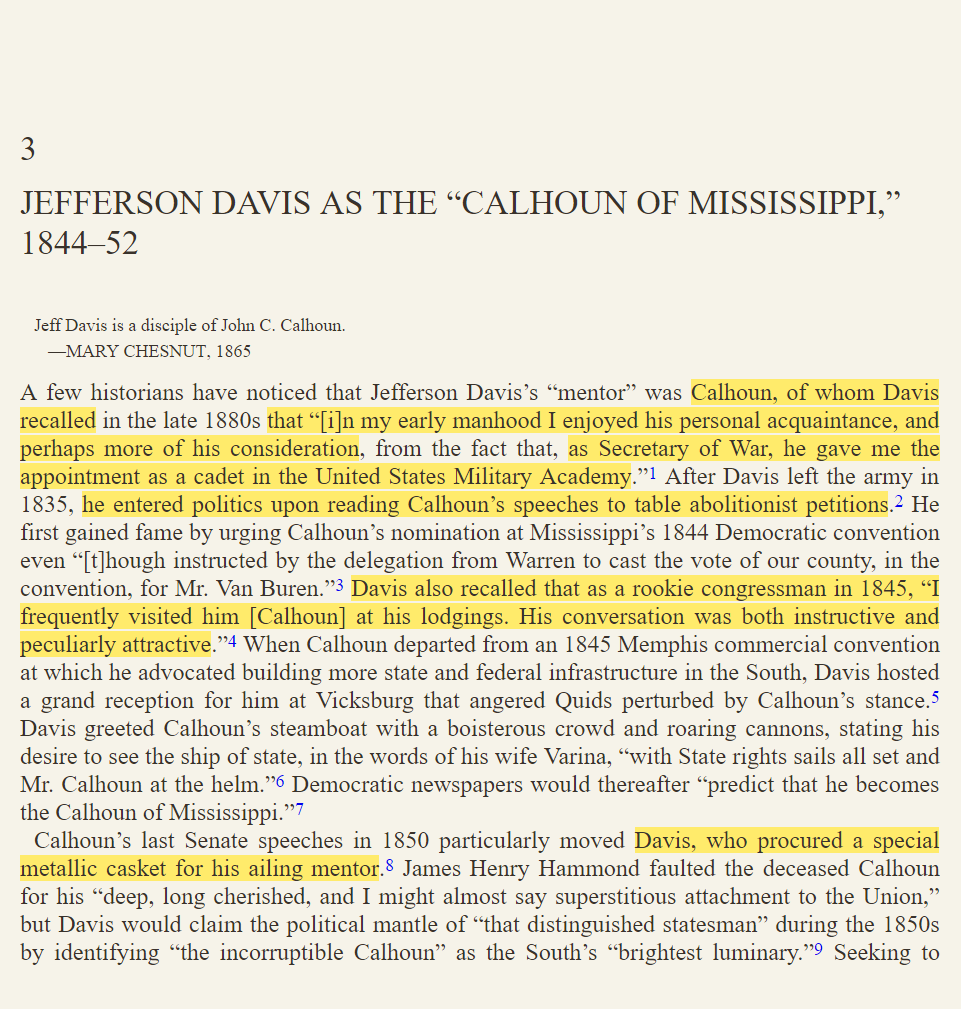 ... 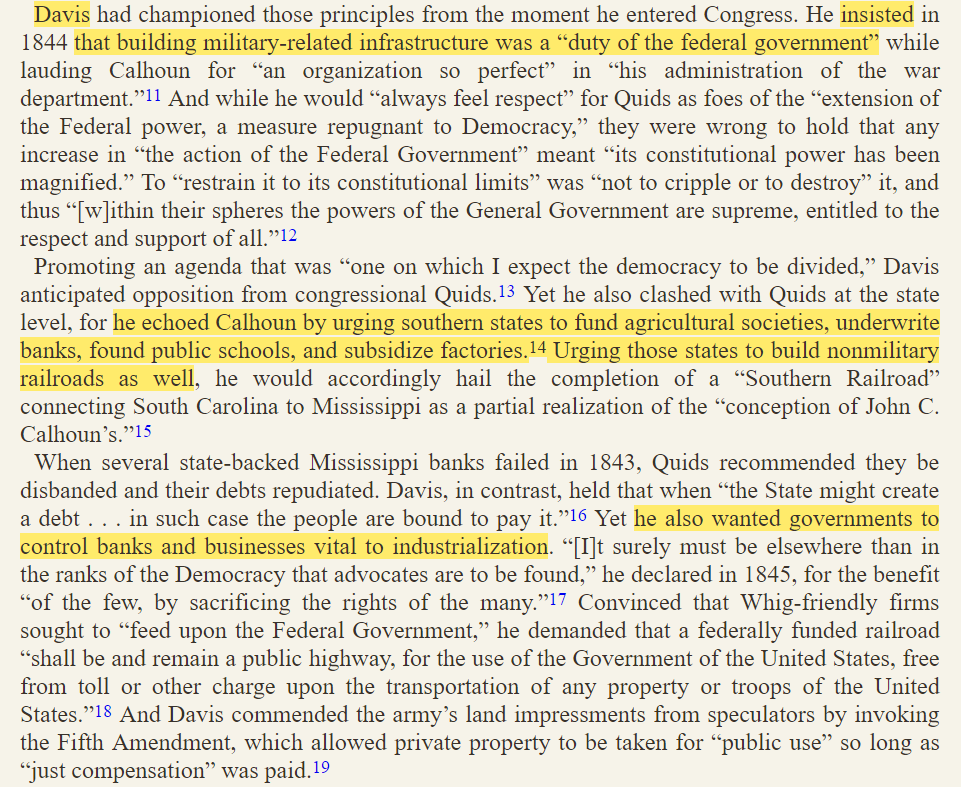 ... 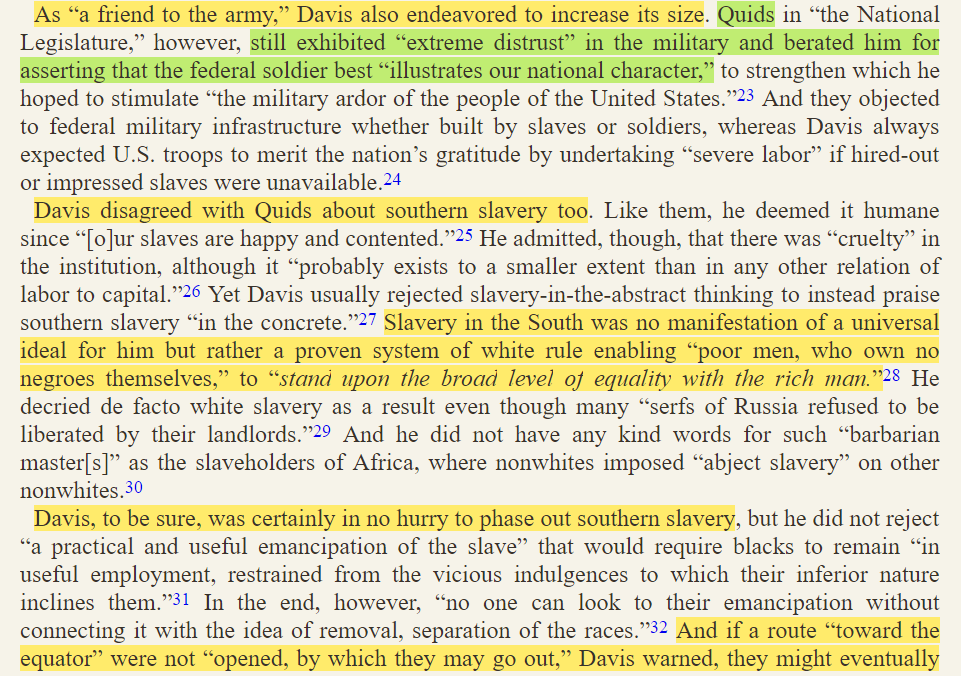  ... 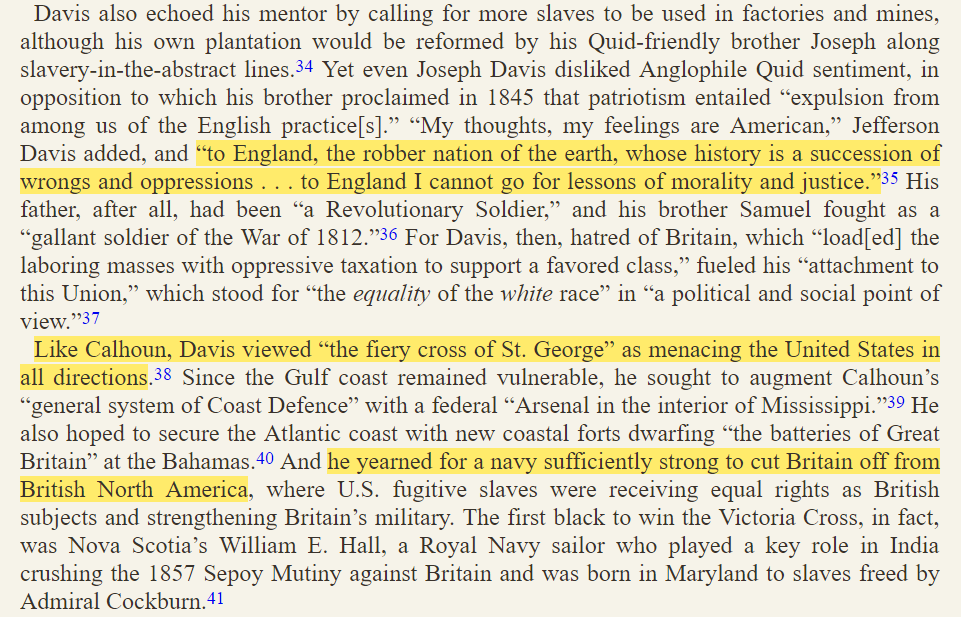 ... 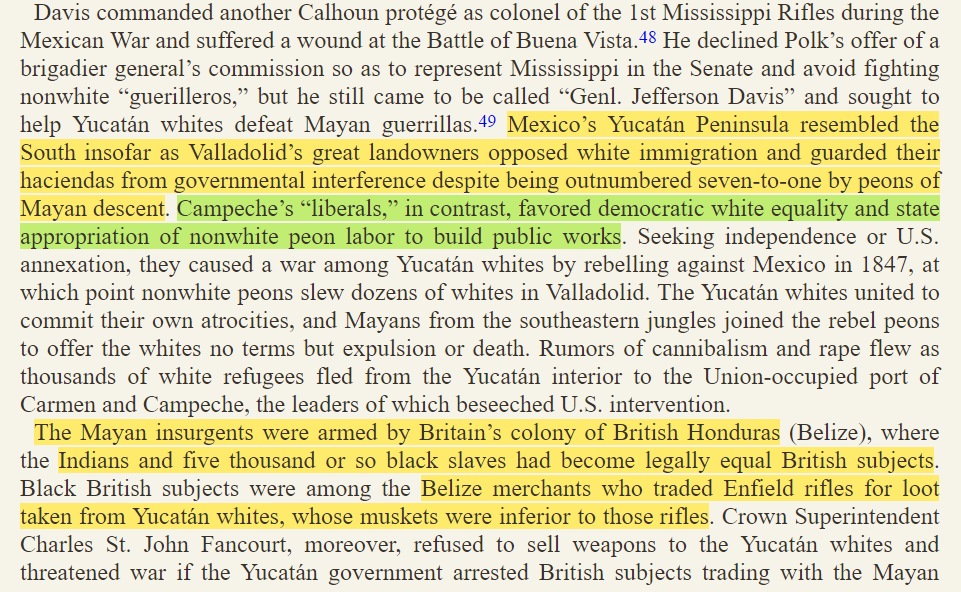 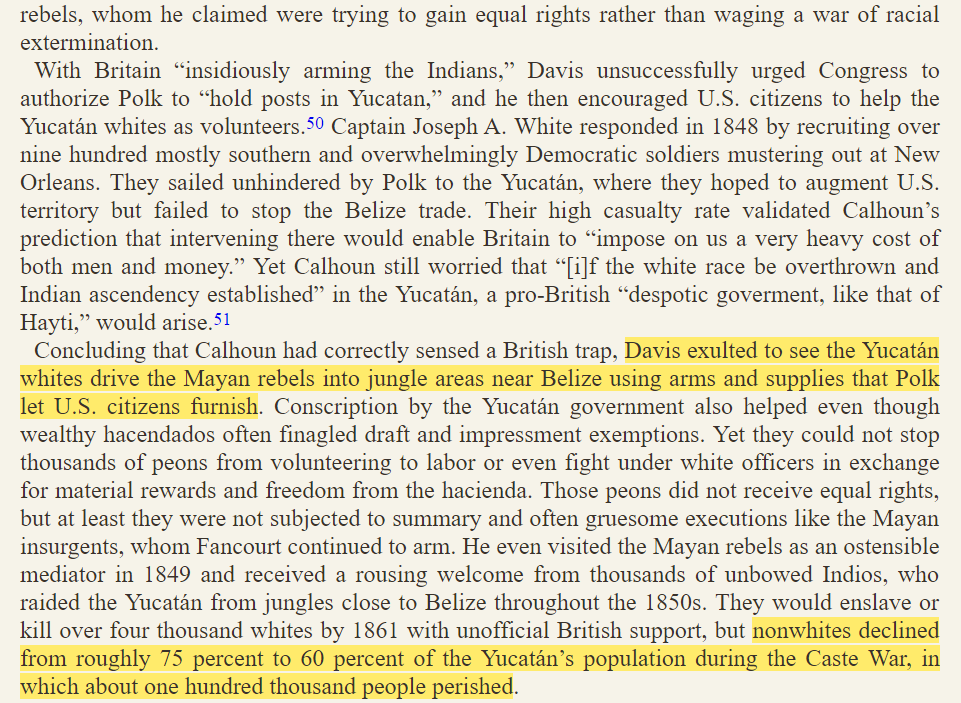 ...  ... 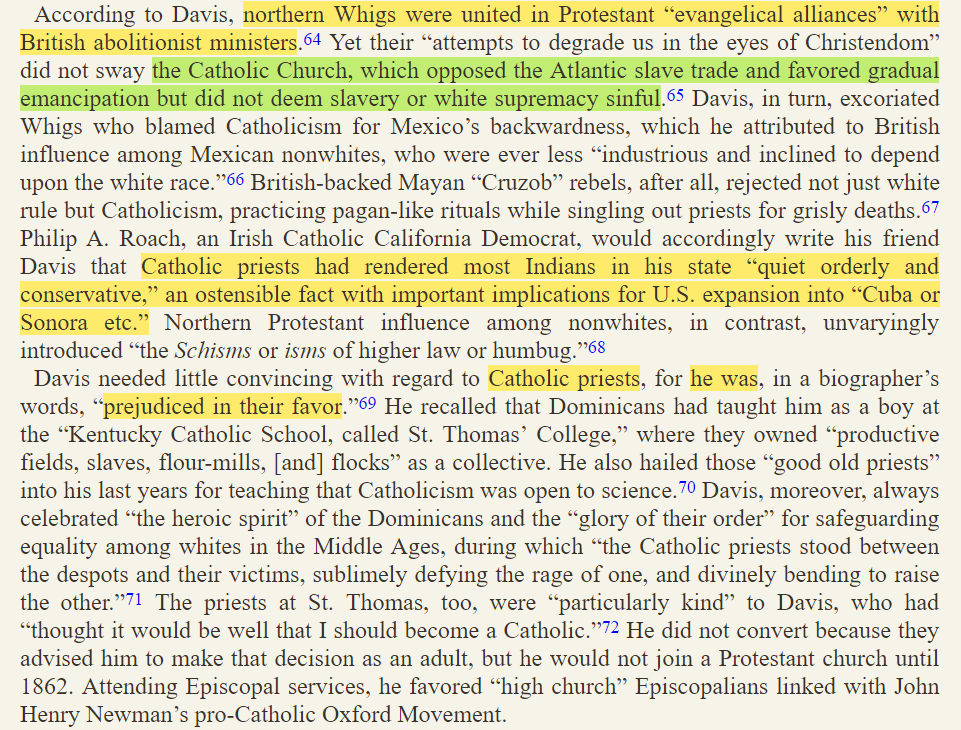 ... 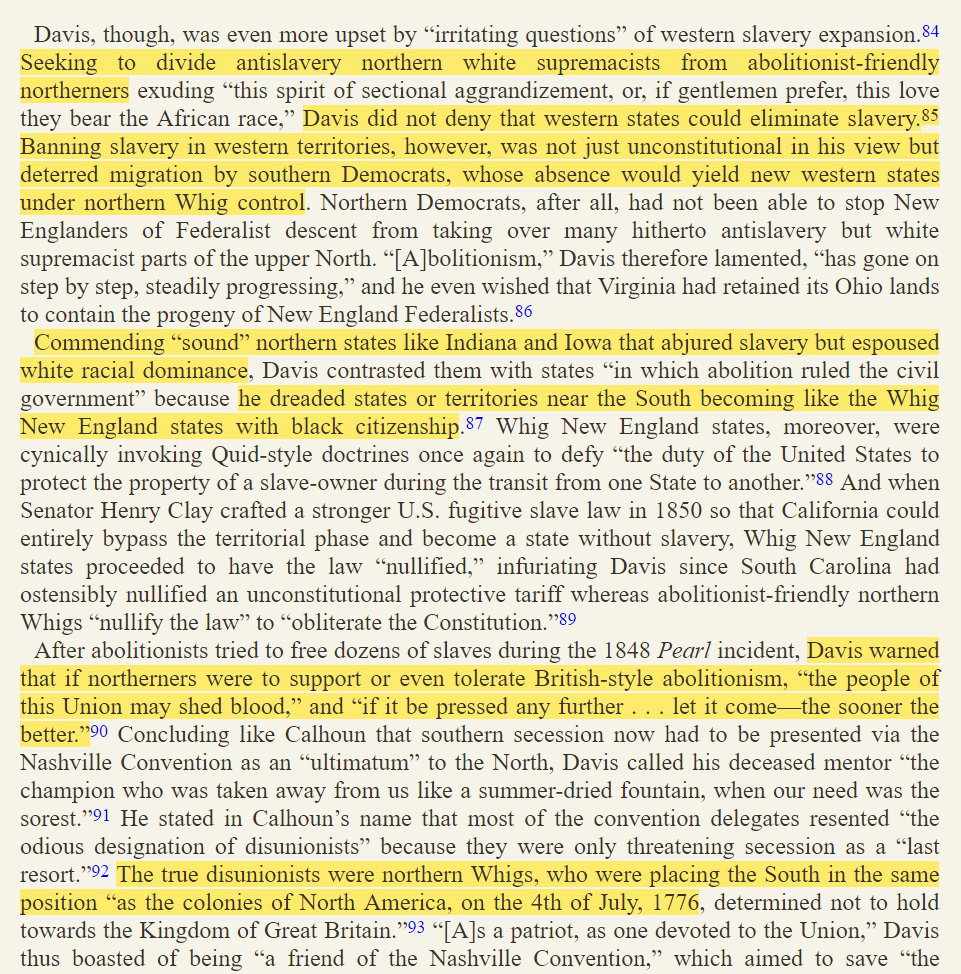 
|
|
|
|
https://www.youtube.com/watch?v=hXrdZ5kWRqs https://www.youtube.com/watch?v=tV01JADspNo
|
|
|
|
quote:That evening during his lecture in the dharma hall Baizhang talked about what had happened that day. Huangbo asked him, "A teacher of old gave a wrong answer and became a wild fox for five hundred lifetimes. What if he hadn't given a wrong answer?"
|
|
|
|
this was fantastic. thank you for sharing
|
|
|
|
gradenko_2000 posted:
Yankee 🤝Dixie "at least we treat our slaves better than the brits treat the indians."
|
|
|
|
talk poo poo, get hit
|
|
|
|
Got a question about the nuclear bombing of Japan: I know the Japanese government was seeking some sort of peace treaty for some time but refused unconditional surrender. What exactly were the sticking points and what might have happened if the Allies negotiated
|
|
|
|
StashAugustine posted:Got a question about the nuclear bombing of Japan: I know the Japanese government was seeking some sort of peace treaty for some time but refused unconditional surrender. What exactly were the sticking points and what might have happened if the Allies negotiated consider the source but to tide you over before someone knowledgeable chimes in https://www.history.navy.mil/about-us/leadership/director/directors-corner/h-grams/h-gram-053/h-053-2.html lays out some of the events and timeline of Japan's internal peace... issues. it's a long read and I don't know enough about the events myself to critically judge the source but nothing stuck out as nutty. most relevant part is probably: quote:The news of the Soviet offensive sent the Supreme Council into urgent session, with Prime Minster Suzuki and Minster of Foreign Affairs Togo coming out in favor of opening a negotiating channel to the United States via Switzerland and Sweden, along with Navy Minister Yonai. Togo’s proposal to accept the Potsdam Declaration with the condition that the emperor’s position be preserved (something the declaration did not specifically address). The hardliners countered with a proposal that added additional conditions (which the Allies would certainly reject). As the discussion was going on, General Amani and General Umezu were secretly taking steps to implement martial law to prevent any such negotiations from happening at all. At 1030, Suzuki reported to the council that the emperor was in favor of ending the war quickly. Nevertheless, the council was still deadlocked 3–3 at 1100 when word of the Nagasaki bomb was received, and remained so even afterward.
|
|
|
|

|
| # ? May 27, 2024 10:32 |
|
StashAugustine posted:Got a question about the nuclear bombing of Japan: I know the Japanese government was seeking some sort of peace treaty for some time but refused unconditional surrender. What exactly were the sticking points and what might have happened if the Allies negotiated At first the two big sticking points were Japan's form of government and Japanese imperial territories. The Allies demanded unconditional surrender which meant giving up all territory outside the Japanese home islands and no guarantees that the monarchy wouldn't be abolished. There were smaller ones too, which became bigger as the dire situation got clearer to the Japanese leadership, which included no military occupation of Japan and no war crimes trials of Japanese leaders. As late as June 1945, the Japanese leadership were trying to negotiate a peace through the Soviets that would have had the Allies agree to the independence of the European colonies still occupied by Japan, assumed that Japan would get to keep Taiwan, Korea, Manchuria, south Sakhalin, and some Pacific islands, and that would preserve the existing Japanese form of government, especially the emperor's position as national ruler. When they actually conveyed this to their ambassador in Moscow, and the Soviets stalled all his efforts at negotiation because they were committed to entering the war and fighting until Japan's unconditional surrender as a means of securing the Soviet Far East, the ambassador told the Japanese cabinet that unconditional surrender, with the sole exception of preserving the position of the emperor and royal family, was the best they could hope for. Even after that, they hung on for another two months because they weren't willing to accept unconditionality, and the military members of the cabinet were still hoping for the same thing they had been hoping for for months: to inflict a costly enough battle on the Allies that they would give up on unconditionality. Each time they more or less accepted that they would be defeated but hoped to make the next Allied advance such a pyrrhic victory that they would negotiate and let Japan keep something. They hoped that would be the case in the Philippines and then in Okinawa, and by summer 1945 they were hoping it would be the case with the invasion of Japan itself. The final sticking point, even after the Soviets invaded Manchuria and the US dropped atomic bombs on Hiroshima and Nagasaki, was still the position of the emperor. In the final days before the Japanese surrender, the cabinet was split between one half that wanted to surrender with one condition (retaining the emperor's position) and the other half that wanted to surrender with four conditions (retaining the emperor's position, Japan handling its own disarmament, Japan having responsibility for its own war criminals, and no military occupation of Japan), which they must have known the Allies would never accept. Japan's first offer of surrender after Nagasaki and the Soviet invasion had only one condition which was retaining the emperor's position, the Allies rejected it, and a couple days later Japan surrendered unconditionally despite a failed military coup that tried to stop it. The "what if the Allies negotiated" isn't worth a ton of thought because all three of the big Allies were committed to forcing unconditional surrender one way or another.
|
|
|





















